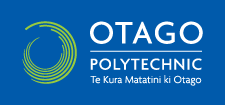Summary
In this unit, we:- Postulated that in a digital world, where the cost of replicating knowledge is near zero, as individuals working together we can widen access to learning for all using the open web and open content licensing.
- Explored and reflected on our own motivations for working in education or related professions thinking about what permissions of use and reuse we consider fair and reasonable in a teaching and learning context.
- Considered the relationships between digital freedom and education.
- Reflected on the shortcomings of copyright as a mechanism to regulate the ownership of ideas in a digital world and the necessity to align our educational practices with our core values in fostering an ecology of creativity in education.
- Provided a framework for defining OER according to three interrelated dimensions:
- Educational values: namely that OER should be free;
- Pedagogical utility: ensuring that OER embeds the permissions of the 4Rs (reuse, revise, remix and redistribute); and
- Technology enablers: specifying that OER should consider access to the technical tools required for editing and that OER should be meaningfully editable to facilitate the 4R activities.
- Highlighted the plausibility for a quantum shift opportunity to provide free learning to all students of the world utilising the power of OER.
Closing activity
Activity
This activity is based on #Open Textbook Tweet, a short publication containing microblog contributions from educators, administrators, and learners reflecting on the burgeoning phenomenon of open education resources and open textbooks.
|


